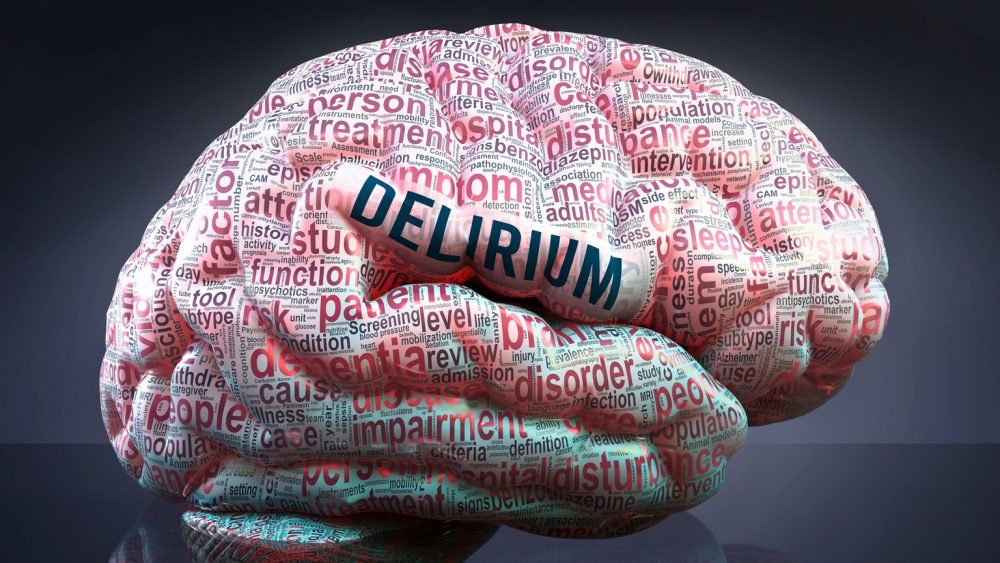Advertisment
Social determinants of health provide better understanding of brain vulnerability to delirium

A Hebrew SeniorLife study published in the Journal of the American Geriatrics Society provides a framework to better understand risk factors for developing delirium, a common psychiatric syndrome that is costly and potentially life-threatening when present in older adults. Attributable health care costs of delirium exceed $164 billion per year across all older adults, and represent a significant public heath priority.
The study proposed a novel social determinants of health (SDOH) framework for delirium because the economic, psychosocial, and environmental factors that influence the development of delirium are important and poorly understood. The researchers completed a careful review of existing literature, identifying environmental, historical, and social variables that influence cognitive trajectories, tailored to the needs of older adults. The framework expanded upon existing literature to comprehensively capture the social circumstances, environmental characteristics, and life course factors that may protect against or precipitate delirium in older adults. Ultimately, the authors hope that the model stimulates future research seeking to characterize the influence of SDOH on acute cognitive changes.
Franchesca Arias, Ph.D., Assistant Scientist, Aging Brain Center, Hinda and Arthur Marcus Institute for Aging Research, is the lead author of the study, “A Framework of Social Determinants of Health (SDOH) for Delirium Tailored to Older Adults.” Sharon K. Inouye, M.D., M.P.H., Director, the Aging Brain Center, Marcus Institute, is senior author.
By 2060, it is expected that 23 percent of the U.S. population will be 65 years old or older, a demographic shift with largescale social and economic implications. Late adulthood is associated with increased cognitive vulnerabilities and medical needs. Older persons who reside in economically disadvantaged areas exhibit worse medical outcomes and earlier functional decline relative to those in more affluent areas. Ethno-racially diverse older adults are disproportionately affected by dementia relative to their non-Hispanic White peers, controlling for age and comorbidity.
“Advancing our understanding of the factors that improve health outcomes in older adults is a public health priority,” Dr. Arias said.
“To lay the work in context, SDOH have been well-examined in their contributions to chronic conditions, such as dementia; however, their contribution to delirium has not been previously well-examined,” said Dr. Inouye.
Other authors included Margarita Alegria, Ph.D., Chief of the Disparities Research Unit, Massachusetts General Hospital; Amy J. Kind, M.D., Ph.D., Director of the Center for Health Disparities Research, Wisconsin School of Medicine; Richard N. Jones, Sc.D., Professor of Psychiatry, Department of Psychiatry and Human Behavior, Brown University; Thomas G. Travison, Ph.D., Director of Biostatistics and Data Sciences, Marcus Institute; Edward R. Marcantonio, M.D., Professor of Medicine, Division of General Medicine, Beth Israel Deaconess Medical Center; Eva M. Schmitt, Ph.D., Associate Director, Aging Brain Center and Assistant Scientist, Marcus Institute; and Tamara G. Fong, M.D., Ph.D., Assistant Scientist, Aging Brain Center, Marcus Institute.
This work was funded in part by grants no. P01AG031720 (SKI) and R24AG054259 (SKI) from the National Institute on Aging and NIA Diversity Supplement to grant P01AG031720 (SKI) and by grant no.2019-AARFD-644816 from the Alzheimer’s Association.
About the Hinda and Arthur Marcus Institute for Aging Research
Scientists at the Marcus Institute seek to transform the human experience of aging by conducting research that will ensure a life of health, dignity, and productivity into advanced age. The Marcus Institute carries out rigorous studies that discover the mechanisms of age-related disease and disability; lead to the prevention, treatment, and cure of disease; advance the standard of care for older people; and inform public decision-making.
HEBREW SENIORLIFE HINDA AND ARTHUR MARCUS INSTITUTE FOR AGING RESEARCH





